Post-Workout Hydration and Recovery: 5 Delicious Recipes to Refuel Your Body
You’ve crushed your workout. Pushed your limits. Left it all on the gym floor (or the park, or the track – you get the picture). Now what?
Hydration and recovery are just as important as that killer workout itself. Think of your body like a high-performance car. You wouldn’t just slam the brakes and park it after a long drive, would you? You’d let the engine cool down, refuel it with high-octane gas, and maybe even give it a quick wash to get ready for the next adventure.
That’s exactly what your body needs after a workout. You need to replenish fluids, refuel your muscles with essential nutrients, and aid in the recovery process to minimize soreness and get you back in the gym feeling stronger and better than before.
But let’s face it, plain water, while absolutely crucial, can get a little boring. And that protein bar you grabbed in a hurry might not be giving your body everything it needs.
That’s where these 5 delicious and functional post-workout recipes come in. We’re talking refreshing drinks, power-packed smoothies, and quick bites that taste amazing and will leave you feeling rehydrated, refueled, and ready to conquer your next workout.
So, grab your blender, your shaker bottle, and your appetite. Let’s dive into these recovery recipes and get your body back on track!
The Science Behind Post-Workout Recovery
Before we jump into the recipes, let’s take a quick detour into the science of why post-workout recovery is so important.
During exercise, your body breaks down muscle tissue to generate energy. This breakdown creates microscopic tears in your muscle fibers. It’s these tears that lead to that delightful (or not-so-delightful) feeling of muscle soreness we all know and love (or hate).
Hydration is key during and after exercise to replace fluids lost through sweat. Dehydration can lead to fatigue, muscle cramps, and hinder your recovery process.
Electrolytes are minerals like sodium, potassium, and magnesium that help regulate muscle function and fluid balance. They get depleted during exercise, so replenishing them is crucial.
Protein is the building block of muscle tissue. Consuming protein after a workout helps repair those microscopic tears and rebuild stronger, healthier muscle fibers.
Carbohydrates provide your body with readily available energy to replenish glycogen stores depleted during exercise.
By incorporating these essential elements – fluids, electrolytes, protein, and carbohydrates – into your post-workout routine, you’ll be setting your body up for optimal recovery, reduced soreness, and improved performance in the long run.
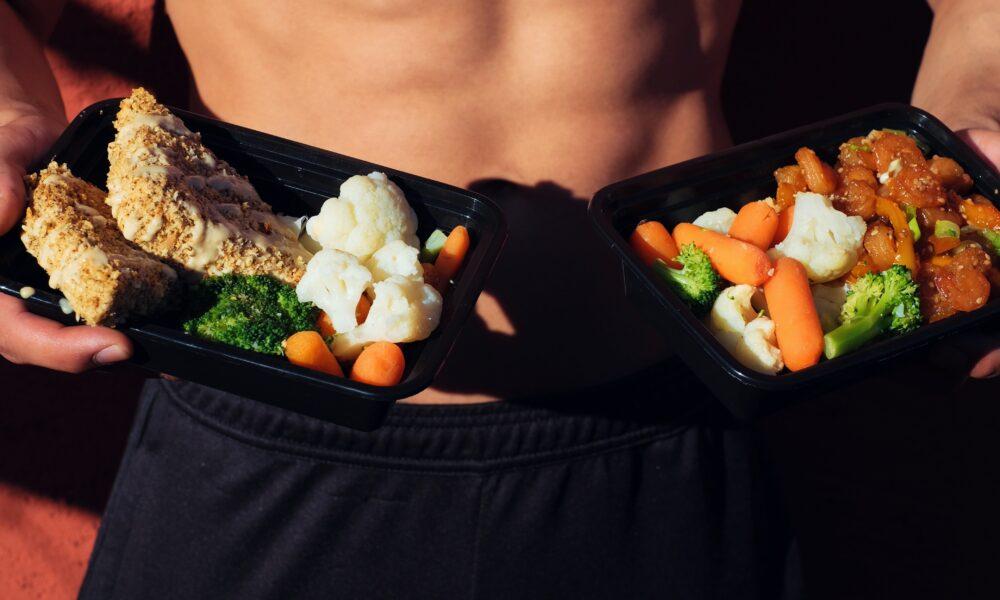
5 Delicious Post-Workout Recipes to Refuel Your Body
Alright, now for the fun part – the recipes! We’ve got a variety of options to suit your taste buds and dietary needs.
Post-Workout Recovery Smoothies
1. Tropical Recovery Blast
This smoothie is a delicious and refreshing way to replenish fluids and electrolytes after a sweat session.
Ingredients:
- 1 cup unsweetened coconut water
- 1/2 cup frozen mango chunks
- 1/2 cup frozen pineapple chunks
- 1 banana, peeled and frozen
- 1 scoop vanilla protein powder
- 1/2 cup spinach (optional, but adds a hidden veggie boost!)
- 1/4 cup water or additional coconut water (depending on desired thickness)
Instructions:
- Combine all ingredients in a blender and blend until smooth and creamy.
- Enjoy immediately!
Why it works: Coconut water is a natural source of electrolytes, while the frozen fruit provides vitamins, antioxidants, and a touch of sweetness. The protein powder helps repair muscle tissue, and the spinach adds a boost of iron and other essential nutrients.
2. Berry Power Protein Smoothie
This smoothie is packed with antioxidants from berries and provides a good dose of protein for muscle repair.
Ingredients:
- 1 cup plain Greek yogurt
- 1/2 cup frozen mixed berries
- 1/4 cup rolled oats
- 1 scoop unflavored protein powder
- 1/2 cup almond milk (or milk of your choice)
- 1 tablespoon honey (optional)
Instructions:
- Combine all ingredients in a blender and blend until smooth and creamy.
- If using honey, add it to taste.
- Enjoy immediately!
Why it works: Greek yogurt is a great source of protein and calcium, while the berries are loaded with antioxidants that help reduce inflammation and support muscle recovery. The rolled oats provide sustained energy release, and the almond milk adds creaminess and healthy fats.
Post-Workout Recovery Bites
3. Energy Balls with a Kick
These bite-sized snacks are perfect for a quick and convenient post-workout refuel. They’re packed with protein, healthy fats, and complex carbohydrates to keep you feeling satisfied and energized.
Ingredients:
- 1 cup rolled oats
- 1/2 cup chopped nuts (almonds, cashews, walnuts, etc.)
- 1/4 cup dried fruit (raisins, cranberries, apricots, etc.)
- 1/4 cup nut butter (peanut butter, almond butter, cashew butter)
- 1/4 cup honey
- 1 tablespoon chia seeds
- 1/4 cup shredded coconut (optional)
Instructions:
- In a large bowl, combine all ingredients and mix well until everything is evenly incorporated.
- Roll the mixture into bite-sized balls using your hands.
- Place the energy balls on a baking sheet lined with parchment paper.
- Refrigerate for at least 30 minutes to allow them to firm up.
- Store in an airtight container in the refrigerator for up to a week.
Why it works: The rolled oats provide complex carbohydrates for sustained energy, while the nuts and nut butter offer healthy fats and protein for muscle repair. The dried fruit adds a touch of sweetness and natural vitamins and minerals. The chia seeds are a source of fiber and omega-3 fatty acids, and the shredded coconut adds a delightful textural contrast (and a tropical flair!).
4. Mini Sweet Potato and Black Bean Quinoa Bowls
These mini bowls are a complete and satisfying post-workout meal. They’re packed with protein, fiber, complex carbohydrates, and healthy fats to keep you feeling full and energized.
Ingredients:
- 1 cup cooked quinoa
- 1 medium sweet potato, roasted and diced
- 1/2 cup black beans, rinsed and drained
- 1/4 cup chopped avocado
- 1/4 cup chopped red onion
- 1 tablespoon chopped fresh cilantro
- Lime wedges (for serving)
- Optional toppings: crumbled feta cheese, salsa, chopped fresh tomatoes
Instructions:
- In a large bowl, combine cooked quinoa, diced sweet potato, black beans, avocado, red onion, and cilantro.
- Toss to coat everything evenly.
- Divide the mixture into small bowls.
- Serve with lime wedges and your choice of optional toppings.
Why it works: Quinoa is a complete protein source, while the sweet potato provides complex carbohydrates and beta-carotene. The black beans add more protein and fiber, and the avocado offers healthy fats. The red onion adds a bit of a bite, and the cilantro brings a fresh flavor profile. This combination provides a well-rounded and satisfying post-workout meal.

Post-Workout Recovery Drinks
5. Electrolyte-Infused Watermelon Agua Fresca
This refreshing drink is a natural source of electrolytes and perfect for rehydrating after a workout. It’s also incredibly versatile!
Ingredients:
- 4 cups seedless watermelon, chopped
- 1 cup water
- 1/4 cup lime juice (or to taste)
- Pinch of sea salt (optional)
- Fresh mint leaves (for garnish, optional)
Instructions:
- In a blender, combine chopped watermelon, water, and lime juice.
- Blend until smooth.
- Strain the mixture through a fine-mesh sieve to remove any pulp, if desired.
- Taste and adjust the lime juice or add a pinch of sea salt for additional flavor.
- Serve chilled over ice and garnish with fresh mint leaves, if using.
Why it works: Watermelon is naturally high in water content and electrolytes, making it a perfect post-workout rehydrating drink. The lime juice adds a touch of tartness and additional vitamin C, while the sea salt (optional) helps replenish electrolytes lost through sweat.
Beyond the Recipes: Additional Post-Workout Recovery Tips
While these recipes are a great way to jumpstart your post-workout recovery routine, there are some additional things you can do to optimize the process:
- Cooling Down: Don’t just stop your workout abruptly. Take 5-10 minutes to cool down with light cardio and static stretches. This helps your body gradually return to its resting state and can reduce muscle soreness.
- Showering: Take a cool or lukewarm shower after your workout to help regulate your body temperature and promote blood flow.
- Sleep: Getting enough quality sleep is crucial for muscle repair and overall recovery. Aim for 7-8 hours of sleep per night.
- Foam Rolling: Using a foam roller can help reduce muscle tension and improve blood flow after a workout.
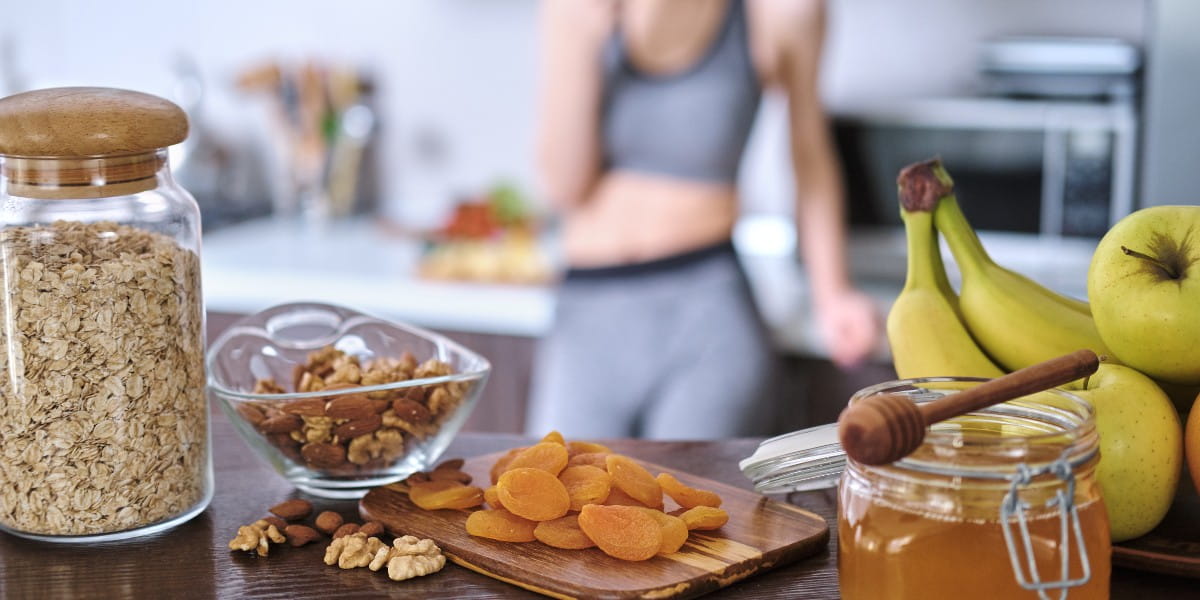
Final Thoughts
By incorporating these delicious recipes, additional recovery tips, and proper hydration into your post-workout routine, you’ll be setting your body up for optimal recovery, reduced soreness, and improved performance in the long run.
Remember, consistency is key! So, fuel your body right, listen to its needs, and get ready to crush your next workout!
FAQs
How much water should I drink after a workout?
A good rule of thumb is to drink 16-20 ounces of water for every pound of body weight lost during your workout. You can weigh yourself before and after your workout to determine how much fluid you need to replace.
Can I just have a protein shake after my workout?
While protein shakes are a convenient option, they’re not a complete solution. Ideally, your post-workout meal or snack should include carbohydrates, protein, and healthy fats for optimal recovery.
When is the best time to eat after a workout?
Aim to consume some protein and carbohydrates within 30-60 minutes of finishing your workout to maximize muscle repair and glycogen resynthesis.
Are there any foods I should avoid after a workout?
It’s best to avoid processed foods, sugary drinks, and excessive amounts of unhealthy fats after a workout. These foods can hinder the recovery process and contribute to inflammation.
How long does it take to recover from a workout?
Recovery time varies depending on the intensity and duration of your workout, as well as your overall fitness level. However, most people will start to feel noticeably better within 24-48 hours after a workout.
Reference Links:
Link 1: Importance of Post-exercise Recovery https://pubmed.ncbi.nlm.nih.gov/33545755/)
This link explores the physiological effects of exercise on the body and highlights the importance of recovery for muscle repair, tissue adaptation, and overall performance improvement.
Link 2: Electrolytes and Physical Performance https://pubmed.ncbi.nlm.nih.gov/1895359/
This resource discusses the role of electrolytes in maintaining fluid balance and muscle function during exercise. It emphasizes the importance of replenishing electrolytes lost through sweat for optimal performance and recovery.
Link 3: Protein for Muscle Repair https://www.health.harvard.edu/nutrition/are-you-eating-enough-protein
This article explores the role of protein in muscle repair and growth. It provides recommendations on the amount and timing of protein intake for optimal post-workout recovery.
Link 4: Carbohydrates for Energy Replenishment https://www.acefitness.org/resources/pros/expert-articles/5815/what-you-need-to-know-about-nutrient-timing/
This source explains how carbohydrates provide readily available energy for the body and emphasizes the importance of replenishing glycogen stores depleted during exercise.
Link 5: Sleep and Exercise Recovery https://www.sleepdr.com/the-sleep-blog/how-does-sleep-affect-exercise-recovery/
This website discusses the critical role of sleep in muscle repair, hormone regulation, and overall recovery from exercise. It emphasizes the importance of getting enough quality sleep for optimal athletic performance.

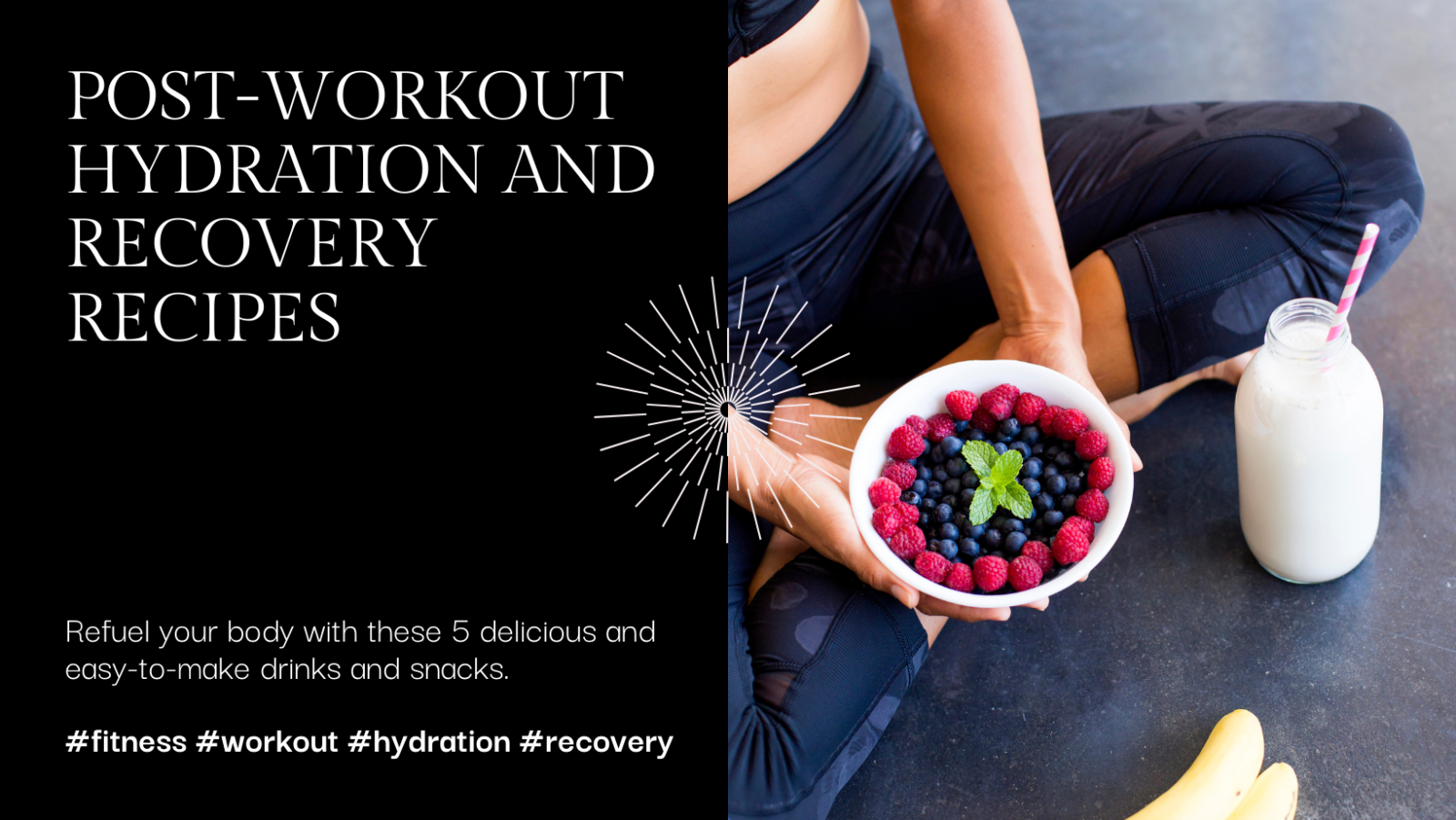



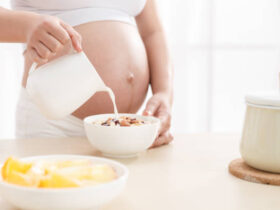

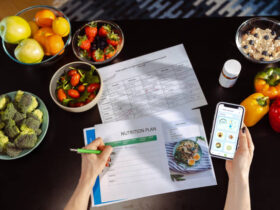
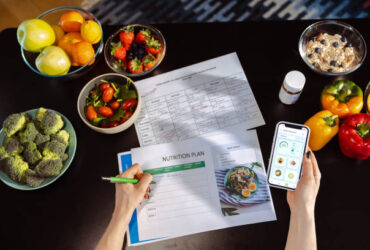

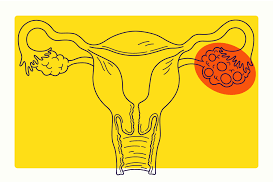
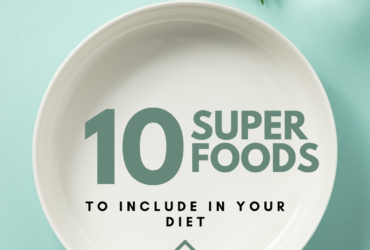
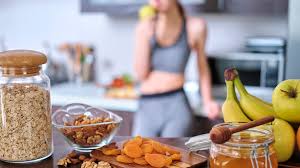
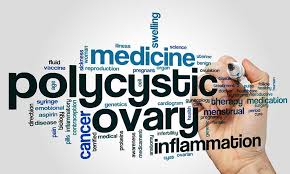

Leave a Reply